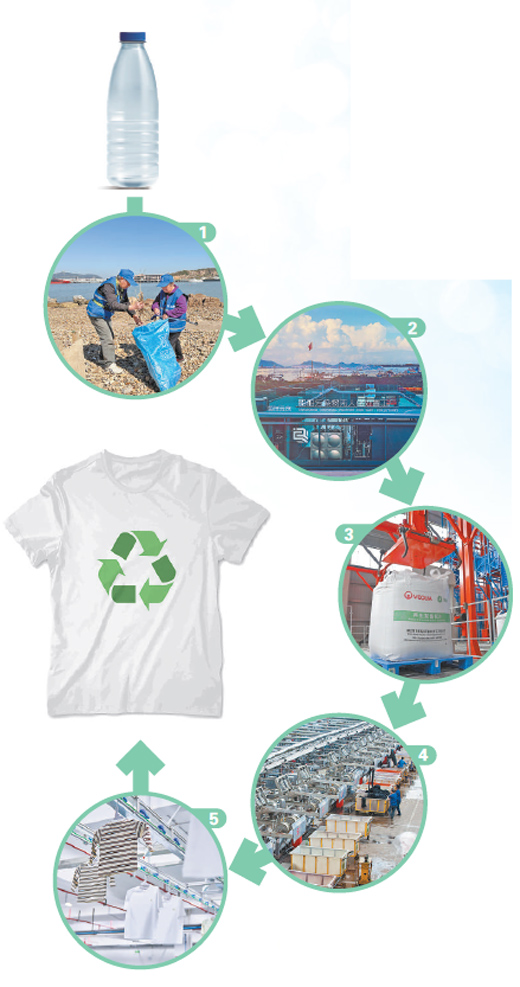Recently, a resident surnamed Yu in Hangzhou, capital of east China's Zhejiang Province, was intrigued by a T-shirt advertised online as being made from "fabric derived from marine plastic waste."
After inquiring with customer service, Yu learned that the polyester fibers used in the T-shirt's fabric came from plastic waste collected along Zhejiang's coastline. This material was then blended with cotton to produce recycled yarn, making the product both environmentally friendly and energy-efficient.
"It's meaningful that a simple T-shirt can contribute to environmental protection," Yu remarked as he placed an order.
The T-shirt is the result of the Blue Circle environmental initiative, a marine plastic waste program launched in Zhejiang, which was honored with the 2023 Champions of the Earth Award - the United Nations' most prestigious environmental recognition - on Oct. 30, 2023. The program aims to tackle the challenges of collecting, processing, and recycling ocean plastic waste, and ensures that the recycled plastics are turned into products.

① : Staff members of a collection and storage site for marine debris called Xiaolan Zhijia, which literally means little blue house, in Jiaojiang district, Taizhou city, east China's Zhejiang Province. (Photo courtesy of VisionBlue)
② : Photo shows the unmanned disposal factory for ship pollutants of the "Ocean Cloud Warehouse" in Jiaojiang district, Taizhou city, east China's Zhejiang Province. (Photo courtesy of the publicity department of the Communist Party of China Jiaojiang district committee)
③ : Photo shows a scene in the plant of Veolia Huafei Polymer Technology (Zhejiang) Co., Ltd. in east China's Zhejiang Province. (Photo/Cui Jili)
④ : Photo shows a scene in the plant of Hangzhou Xinsheng Printing and Dyeing Co., Ltd. in east China's Zhejiang Province. (Photo/Fu Xiaoling)
⑤ : Photo shows a scene of a clothing manufacturer in Jiangbei district, Ningbo city, east China's Zhejiang Province. (Photo/Chen Ke)

